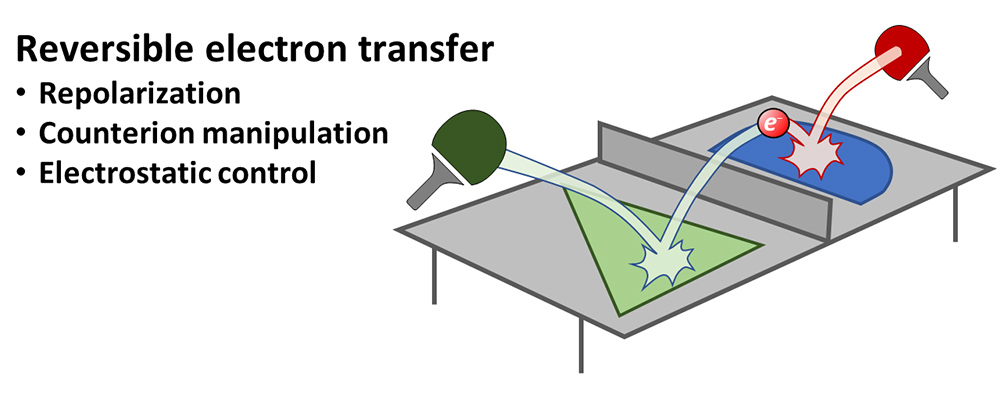Projects
Reversible electron transfer
The goal of this research project is to govern the electron transfer between suitable donor-acceptor pairs by external stimuli in order to control the position of electric charges. We develop various strategies for controlling of redox reactions of organic substrates and stabilization of charge-transfer states. This knowledge will help to prepare novel redox-active materials with unique properties, such as controlled wettability, coordination of ions and electrostatic charging.

Molecular redox switches
Molecular switches represent an important class of molecules which can be regulated by the action of external stimulus (light, pH, solvent change or temperature). They exist in two chemically stable states with different geometry, chemical and physical properties. Redox switches, a unique class of bi-stable molecules that change their structure by a redox process, can exist both as a discharged form and a charged form (accompanied with the respective counterion). We develop novel molecular redox switches and characterize their switching properties. We aim to immobilize them on surfaces and into materials that will be utilized for charging of surfaces, electrostatic bending), manipulation with counterions (redox-programmable ion exchange) and design of molecular devices with reversible polarity.

Stabilization of radical species
We study stable organic radicals and radical ions and methods for their generation, stabilization and utilization. Various strategies, such as complexation with stabilizing molecules, controlled subsequent reactivity of generated radicals and steric isolation in macrocyclic confined environment, are investigated. Our goal is to understand which factors can thermodynamically or kinetically hinder the back-electron transfer after a redox process.

Other interests
Our research group is also interested in photoactivatable compounds that undergo defined photochemical change upon excitation (bond fission, bond formation and rearrangements). We develop systems for reversible photochemical reactions, fluorescent molecules suitable for sensing and labelling and photo-click bioorthogonal reactions.
